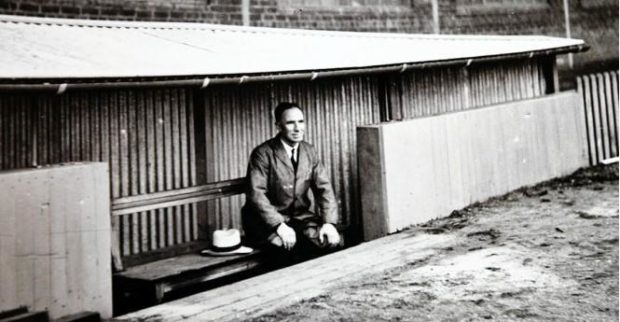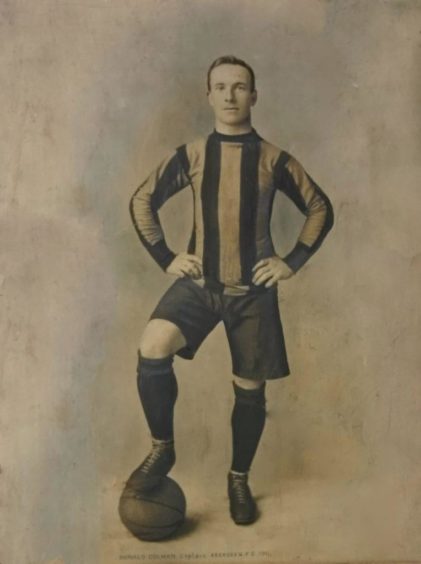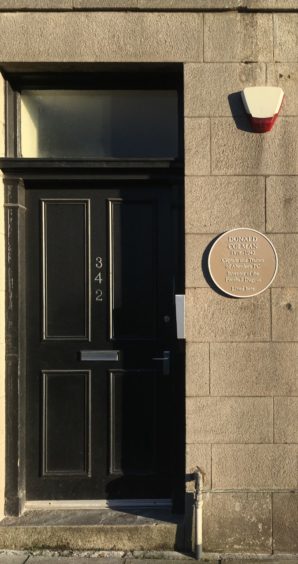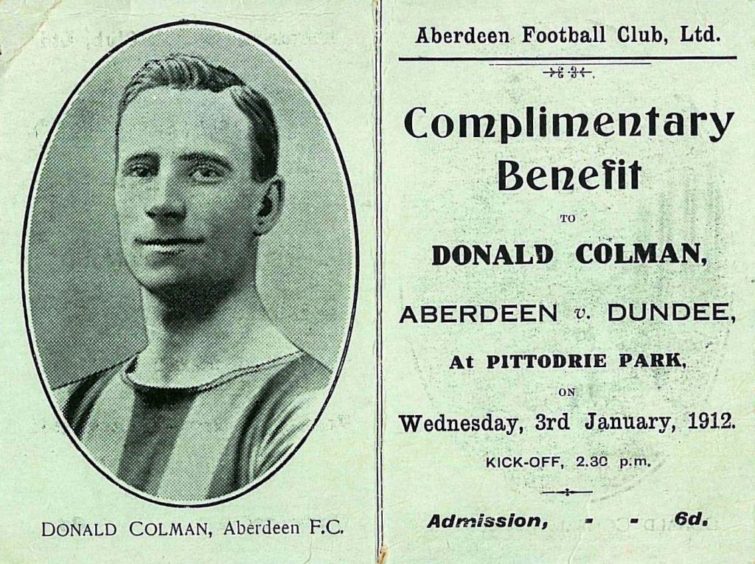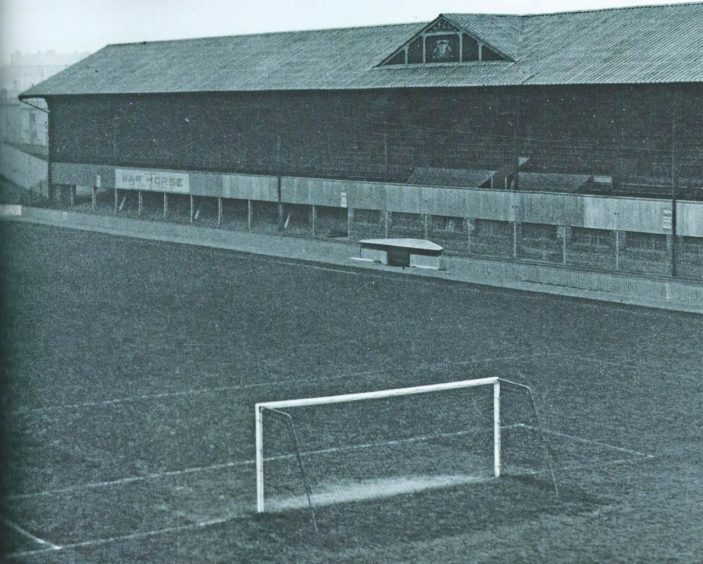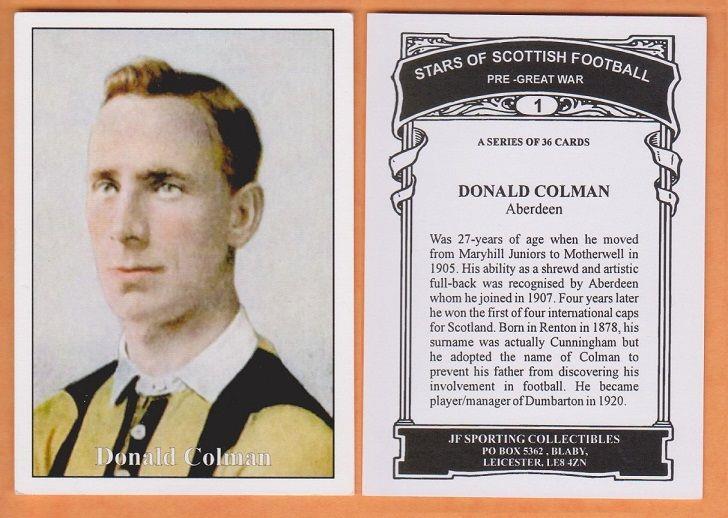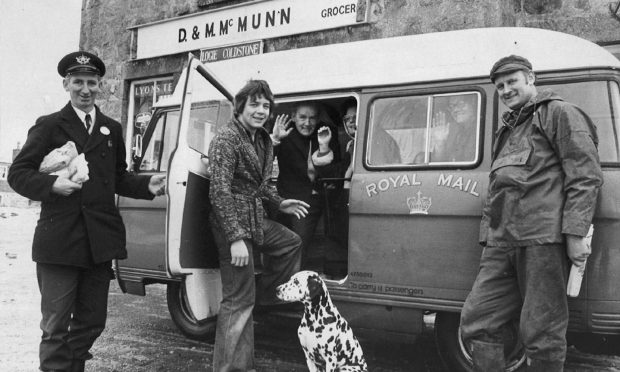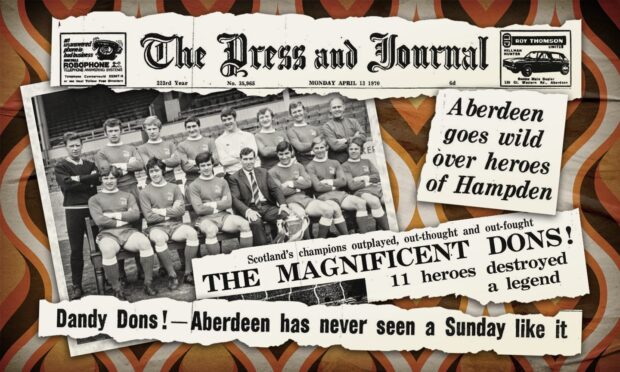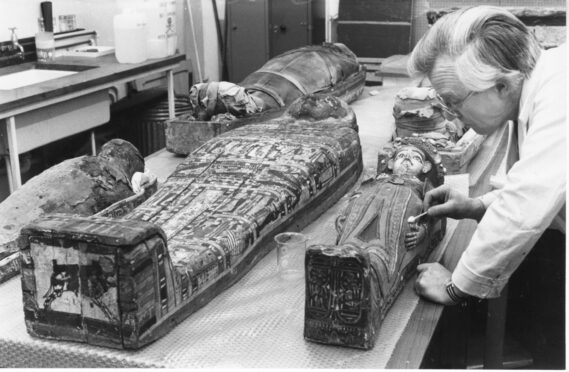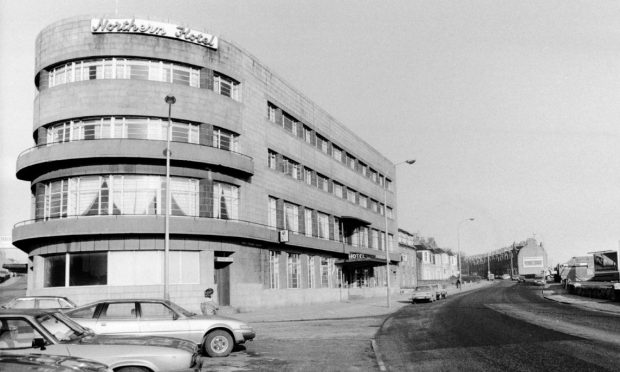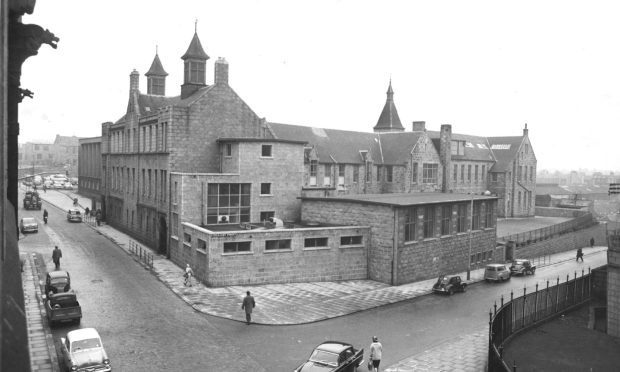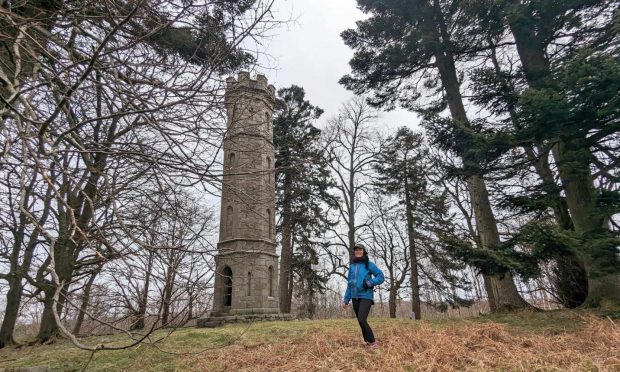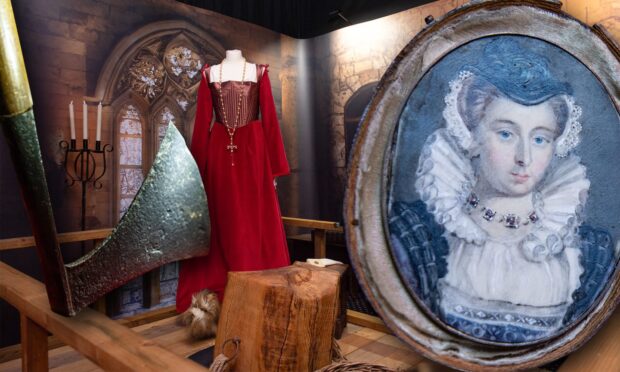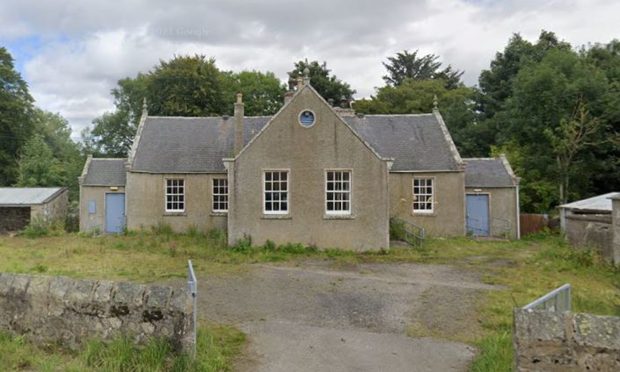Not many footballers can lay claim to inventing something which has become an integral part of the game all over the world.
But there again, not too many figures in the sport have enjoyed such a stellar and innovative career as Donald Colman during his lengthy tenure at Pittodrie.
The pioneering Aberdeen coach, who invented the football dugout almost 90 years ago, is being honoured after councillors in the Granite City gave the go-ahead for a plaque to be installed at 342 King Street; the former home of the man who captained the side to great effect during a 13-year playing spell in the early 20th century.
After serving in the First World War with the Gordon Highlanders, Colman, who was born Donald Cameron Cunningham in Renton in Dumbartonshire in 1878, was one of life’s great peripatetic characters and coached in Norway before returning to the north-east and dreaming up the dugout – which was copied by teams around the world.
And now, the Aberdeen FC Heritage Trust has successfully lobbied for this idiosyncratic fellow to be accorded proper recognition once lockdown restrictions are lifted.
Webster’s testimonial sums up Colman’s mustard
The late journalist, Jack Webster, who wrote the official centenary book about the history of Aberdeen FC, was among those who relished Colman’s keen-as-mustard approach to tackling challenges and steering the Dons forward.
As Mr Webster wrote: “Donald Colman was one of the most remarkable men in the entire history of football.
“Those who remembered him would glow at the very mention of his name, such was the power of this quietly impressive man.”
And when he died of tuberculosis in October 1942, aged just 64, he left behind a legacy which still exists among the football cognoscenti and where the likes of Jock Stein and Bill Shankly, Jock Wallace and Alex Ferguson, Matt Busby and Tommy Docherty, passed on tactics, roared on encouragement and indulged in explosive rants.
All of which explains why the AFC Trust has worked tirelessly to ensure that his contribution is immortalised at the house he called his home for decades.
Colman was told he should stick to Junior football
Born in 1878, the youngster spent a lot of time with his grandmother and gradually developed a passion for football, spending myriad hours developing and nurturing his skills with the heavy leather sphere.
However, as Stewart Eaton of the heritage trust revealed, he had to be careful not to provoke the wrath of his parents, which explains why he used an alias in football circles, even though he suffered a demoralising snub at the start of his career.
Mr Eaton said: “Fearing the disapproval of his parents, Donald used his grandmother’s name of Colman when he signed up with the local junior football team.
“He played for a number of junior sides, becoming a skilful full back. The progression to senior football was not easy though and, after taking part in a trial for Sunderland against Hibs, the Sunderland manager told Donald he should stick to junior football.”
Fortunately, given the fact that he later went on to represent his country, Colman used that rebuff as an inspiration to pour his heart and soul into the game.
Donald proved his worth for the Dons and Scotland
He had to be patient, but Colman’s labours at the grassroots reaped dividends and, following a two-year spell with Motherwell, he travelled to the north east and established himself as a first-team player for Aberdeen during the 1907-1908 season.
Mr Eaton added: “Thanks to a recommendation from former team mate and Aberdeen player Jimmy Muir, the then Dons manager Jimmy Philip gave Donald a chance.
“He grabbed the opportunity with both hands and became a stalwart in the first team. Later on, at the age of 33, Donald was capped three times for Scotland and he earned a fourth cap two years later.
“Including an interruption for military service in France during the First World War, Donald gave his all for Aberdeen FC until he was 42, eventually leaving the club in 1920 to become player-manager of Dumbarton.”
The Granite City had left an indelible mark on him, though, but first he had to head off to Scandinavia to branch into different areas after his playing days were over.
EYEWITNESS: The crazy, coruscating world of life in the football dug-out
Donald was thinking on his feet to devise dugout
Colman spent several years visiting Norway, coaching football and became known for his modern and innovative training methods.
Indeed his reputation had grown to the stage where, in 1931, Aberdeen manager Pat Travers persuaded his compatriot to return to Pittodrie as a trainer.
His philosophy placed a lot of emphasis on players’ footwork, the merits of possession football and using space to build up momentum and breach opposing defences.
As a consequence, in order to better allow him to watch his players’ feet, he devised the dugout – a centre line pitchside shelter.
Based on methodical research which has been carried out by the Aberdeen trust, it has emerged that the first dugout area was installed at Pittodrie in the summer of 1934 and it can clearly be seen in a match photograph taken from March 4 1935.
A place of triumph or abject misery
As with most simple ideas, it was a notion which was quickly replicated throughout the football realm.
And who can forget some of the images we have witnessed in later years, such as Fergie chewing gum as if his life depended on it or Ally MacLeod with his head slumped in his hands in abject misery at the 1978 World Cup in Argentina?
It was only one facet of Colman’s story. But it helps explain why he is held in high esteem by people such as the trust’s Chris Gavin who paid a rich tribute.
He said: “Even a hundred years after he stopped playing, Donald Colman remains an all-time top 20 player in terms of appearances for the Dons.
“Combine that with his having been club captain for many years and later that he became one of the most influential trainers at the club.
A stalwart figure – in war and in peace
“That alone could arguably justify his being remembered in the Granite City, but when his list of achievements is topped with the invention of the football dugout, Donald’s place in the history of World Football is assured.
“Because of his place in the pantheon, the AFC Heritage Trust has taken great pleasure in organising, with the help of the City Council, the placement of a commemorative plaque on the building in King Street where he lived for many years.”
It’s not the only accolade he has received. In 2018, Colman was inducted into the AFC Hall of Fame, joining a distinguished group of luminaries.
His granddaughter Marion and grandson Alan Brown accepted the award from the then Aberdeen chairman Stewart Milne whilst other family members were also in attendance, including Colman’s daughter Edna.
Commemorating those who served the Dons proud
The trust has been instrumental in producing a Heritage Trail, which has evolved to include the final resting places of former players and managers.
The route also includes the installation of commemorative plaques, with memorials situated on Correction Wynd and Pittodrie.
Given the litany of achievements by Colman, the AFCHT has progressed the creation of a special plaque in his honour, which will be stationed at the family home.
Obviously, the initiative has been put on hold in recent months because of Covid-19, but it’s hoped it will be installed by Aberdeen City Council in the next few months.
The scheme was approved by the authority’s city growth and resources committee, whose convenor – and council co-leader – Douglas Lumsden said: “It is fantastic for the city to be able to celebrate the great lives of our notable residents.
“Plaques such as this allow visitors and younger residents to learn about Aberdeen’s proud heritage.”
After all, Colman was a player for 13 years and trainer for more than 11.
And a poem was even composed to salute the feats of this prodigious pioneer.
A tribute to the great man in verse
Donald Colman came north in the noughties,
In Edwardian times we should say,
He played in defence like a Trojan,
Winning new fans every day.
He played for the Wasps like a good ‘un,
The people love him every one,
Then the Bon-Accord coined his nickname,
They called him quite simply The Don
Donald, Colman,
The very original Don, THE DON!
Donald, Colman, the very original Don
He played thirteen years at Pittodrie,
And turned out for Scotland in style,
And then he went into retirement,
For play at the top he was old.
Chorus
He came home again in the thirties,
As trainer and coach he took on,
And then he invented the Dugout,
That very original Don!
Chorus
Further information about the Heritage Trust can be found here.
